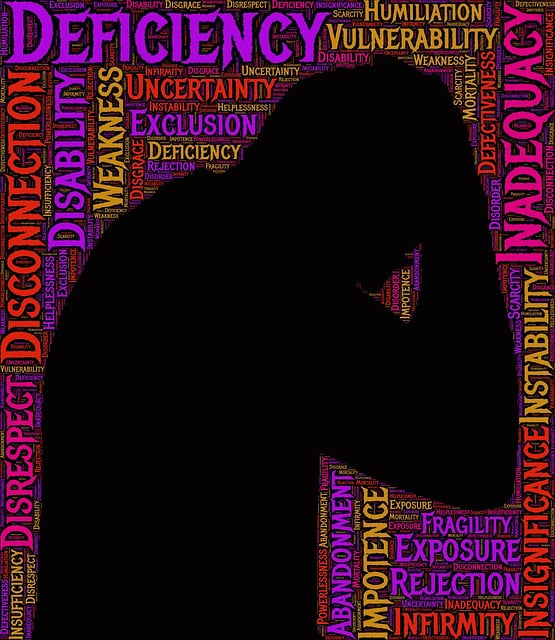In a fast-paced world, young adults face unique pressures leading to rising mental health challenges. Comprehensive education and support are crucial. Integrating Christian counseling offers a holistic approach, combining evidence-based techniques with spiritual guidance to destigmatize mental health conversations and empower individuals with self-care practices. Effective programs focus on common issues like anxiety, depression, and stress, fostering resilience and self-awareness through workshops, discussions, and risk assessment. Creating safe spaces encourages open dialogues, building trust and promoting personal growth. Continuous improvement is tracked through evaluation systems measuring participant progress and outcomes, allowing for data-driven program refinement and contributing to robust mental health policy advocacy centered around inner strength development for young adults.
Mental health issues among young adults have become a pressing concern, highlighting the urgent need for comprehensive education programs. This article explores the design of an effective mental health education initiative tailored for this demographic, focusing on integrating Christian counseling principles. We delve into key components, including sensitivity training and confidentiality practices, to ensure a safe learning environment. Additionally, we discuss strategies for measuring success and fostering continuous improvement in mental health initiatives, emphasizing the potential of therapy for young adults within a Christian counseling framework.
- Understanding the Need for Mental Health Education in Young Adults
- Integrating Christian Counseling Principles into Program Design
- Key Components of an Effective Mental Health Education Program
- Strategies for Delivering Sensitivity and Confidentiality in Group Settings
- Measuring Success and Continuous Improvement in Mental Health Initiatives
Understanding the Need for Mental Health Education in Young Adults

In today’s fast-paced world, mental health issues among young adults have become increasingly prevalent, underscoring the urgent need for comprehensive education and support. This demographic often faces unique challenges such as academic pressures, social media influence, and identity formation struggles, which can significantly impact their emotional well-being. Many young adults may not recognize or understand their symptoms, leading to undiagnosed conditions and unaddressed emotional pain.
Effective mental health education programs are crucial in empowering this age group with knowledge about emotional healing processes and resilience building. Through Christian counseling and therapeutic interventions tailored for young adults, they can learn valuable skills in mood management, coping mechanisms, and self-care practices. Such initiatives aim to destigmatize mental health conversations, encourage early intervention, and promote overall well-being, ensuring a brighter and healthier future for this vital segment of society.
Integrating Christian Counseling Principles into Program Design

Incorporating Christian Counseling Principles into mental health education program design offers a unique and beneficial approach, particularly tailored for young adults seeking therapy. This integration provides a holistic framework that combines evidence-based therapeutic techniques with spiritual guidance, addressing not just the mind but also the soul. By weaving in principles from Christian counseling, programs can foster self-esteem improvement and resilience, which are vital components of mental well-being, especially during formative years. Such an approach encourages participants to explore their faith as a source of strength and purpose, potentially enhancing their overall therapeutic experience.
This strategy also aligns with the broader goals of risk management planning for mental health professionals, ensuring that healthcare providers have the tools to support young adults in a culturally sensitive manner. By integrating Christian counseling, programs can cater to diverse populations, preventing burnout among healthcare providers while offering effective solutions for those struggling with mental health issues. This comprehensive approach leverages the power of faith and professional care, creating a supportive environment where individuals can thrive and develop sustainable coping mechanisms.
Key Components of an Effective Mental Health Education Program

An effective mental health education program, designed with young adults in mind, should encompass a holistic approach to well-being. Incorporating both theoretical knowledge and practical skills is key. Participants should gain an understanding of common mental health challenges faced by their peers, including anxiety, depression, and stress, through interactive workshops and engaging discussions facilitated by trained professionals like Christian counselors.
The program must also equip young adults with self-care practices tailored to their unique needs. This includes teaching mindfulness techniques, healthy coping mechanisms, and stress management strategies. Additionally, a robust risk assessment component is essential for mental health professionals involved in the program to ensure participant safety and guide appropriate interventions. By balancing education, support, and skill-building, these programs foster resilience and empower young adults to navigate their mental health journeys with greater confidence and self-awareness.
Strategies for Delivering Sensitivity and Confidentiality in Group Settings

Creating a safe and supportive environment is paramount when designing mental health education programs, especially in group settings. One effective strategy to foster sensitivity is through facilitating open dialogues that encourage active participation from all attendees. Group members can share their experiences and perspectives while adhering to established ground rules focused on respect and confidentiality. This approach not only builds trust but also allows individuals to learn from one another, enhancing the overall therapeutic effect.
In Christian counseling contexts, these principles remain crucial for providing therapy for young adults. By prioritizing sensitivity and confidentiality, participants feel more comfortable discussing personal struggles openly. Additionally, integrating stress management workshops and burnout prevention strategies for healthcare providers can significantly benefit group dynamics. Social skills training also plays a vital role, ensuring that members develop the tools to communicate effectively and support one another throughout their mental health journeys.
Measuring Success and Continuous Improvement in Mental Health Initiatives

Measuring success and fostering continuous improvement are vital components of any mental health initiative, especially when targeting young adults. One effective approach is to implement a comprehensive evaluation system that tracks participant progress and outcomes over time. This involves setting clear, measurable goals aligned with the program’s objectives, such as improved emotional regulation, enhanced coping strategies, or increased help-seeking behaviors. Regular data collection through surveys, interviews, or clinical assessments allows for a detailed analysis of the program’s impact on individual participants and overall community mental health awareness.
By analyzing these data, organizers can identify areas of success and potential challenges, ensuring that the program remains effective and relevant. This process encourages ongoing refinement and adaptation based on evidence gathered from real-world practice. Incorporating feedback mechanisms and fostering a culture of transparency facilitate continuous improvement in Christian counseling services for young adults, ultimately contributing to more robust mental health policy analysis and advocacy efforts centered around inner strength development.
Mental health education programs designed with an emphasis on Christian counseling principles can significantly benefit young adults, fostering resilience and promoting well-being. By integrating key components like personalized coaching, peer support, and confidential group discussions, these initiatives empower individuals to navigate life’s challenges. Sensitivity and confidentiality in group settings are vital, ensuring a safe space for honest exploration. Continuous improvement through measured success allows programs to adapt and offer effective therapy for young adults, addressing the growing need for mental health education in this demographic. Christian counseling principles provide a unique and supportive framework for their overall well-being.














